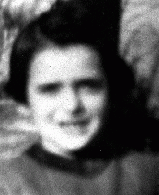You searched for: used交易程序後臺源碼【tg���������@ek7676】平台包网搭建usd交易程序後臺源碼【tg���������@ek7676】平台包网搭建ivkcss1pgu
<< Previous | Displaying results 1521-1530 of 1782 for "used交易程序後臺源碼【tg���������@ek7676】平台包网搭建usd交易程序後臺源碼【tg���������@ek7676】平台包网搭建ivkcss1pgu" | Next >>
-
Ceija Stojka
ID CardCeija was the fifth of six children born to Roma ("Gypsy") parents who were Roman Catholic. The Stojka's family wagon traveled with a caravan that spent winters in the Austrian capital of Vienna and summers in the Austrian countryside. The Stojkas belonged to a tribe called the Lowara Roma, who made their living as itinerant horse traders. 1933-39: Ceija grew up used to freedom, travel and hard work. Once, her father made her a skirt out of some material from a broken sunshade. She was 5 years old and…
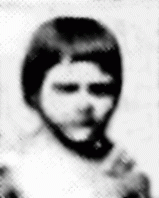
-
Marie Sidi Stojka
ID CardMarie belonged to a tribe of Roma ("Gypsies") called the Lowara Roma who traveled in a caravan and made a living as itinerant horse traders. The caravan spent winters in Vienna, Austria's capital, and summers in the Austrian countryside. When Marie was 18, she married Karl Stojka from the same tribe. Marie's family was Roman Catholic and her ancestors had lived in Austria for more than 200 years. 1933-39: By 1936 Marie had six children. They lived with a caravan, and were used to freedom, travel and hard…
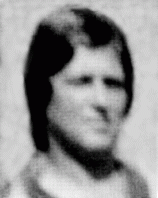
-
Karl Lange
ID CardKarl was born in the north German port of Hamburg. His father was American, and his mother was German. Soon after Karl was born, his father returned to the United States and a little later, his parents were divorced. Karl left school when he was 14 and worked as a shop apprentice. 1933-39: In 1935 an informer told the police about Karl's secret meetings with a 15-year-old youth, and he was arrested under the criminal code's paragraph 175, which defined homosexuality as an "unnatural" act. Though this law…
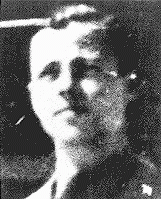
-
Karl Gorath
ID CardKarl was born in the small town of Bad Zwishenahn in northern Germany. When he was 2, his family moved to the port of Bremerhaven. His father was a sailor and his mother became a nurse in a local hospital. After his father died, Karl continued to live with his mother. Karl was 20 when he began training as a deacon at his parish church. 1933-39: Karl was 26 when his jealous lover denounced him and he was arrested at his house under paragraph 175 of the criminal code, which defined homosexuality as an…
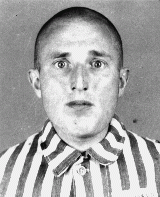
-
Liane Reif
ID CardLiane's Polish-born Jewish parents were married in Vienna, where they lived in a 14-room apartment in a middle-class neighborhood near the Danube River. Liane's father, a dentist, had his office in their home. 1933-39: After Germany annexed Austria in 1938, Liane's father was found dead, a probable suicide. In May 1939, four months before war broke out, her mother booked passage on the St. Louis, a ship bound for Cuba. But Cuban authorities turned the ship back. Along with some other refugees from the…
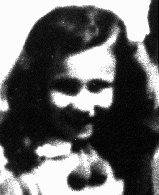
-
Yennj Baehr
ID CardYennj and her husband Heinrich were two of a few Jewish residents in Ruchheim, a small town in the Rhine River valley. Yennj helped Heinrich run their dry goods store that was on the first floor of their house. In the summer she liked working in the garden out back. Their son, Kurt, had immigrated to America after World War I. Ida, their daughter, helped them in the store until she married. 1933-39: The Nazis have come to power, and many Jews have decided to leave Germany. Yennj and Heinrich's niece,…
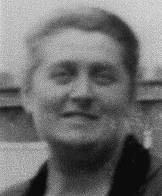
-
Heinrich Baehr
ID CardA Jewish merchant, Heinrich ran a dry goods business with his wife, Yennj, in Ruchheim, a small town in the Rhine River valley. Their son, Kurt, had immigrated to America after World War I. Their daughter, Ida, had helped them in the business until she married. The Baehrs' store took up the first floor of their comfortable two-story brick house. In the summer, they enjoyed their garden in the back. 1933-39: The Nazis have come to power, and many Jews have decided to leave Germany. Heinrich and Yennj's…
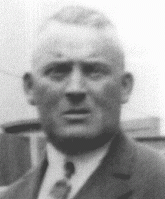
-
Ivo Herzer
ID CardIvo was an only child born to a Jewish family in the city of Zagreb. His father worked in an insurance company. Though blatant antisemitism was considered uncommon in Yugoslavia, Jews were barred from government and university positions unless they converted to Christianity. 1933-39: In Zagreb Ivo studied at a public secondary school. The curriculum was fixed and included three languages as well as religion. His school was highly selective but he enjoyed studying and did well. Though he didn't personally…
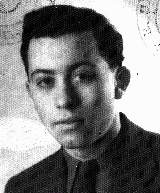
-
Martin Hans Munzer
ID CardHans was born to Jewish parents in a town in northwestern Germany. The family moved to Berlin when Hans' father obtained a post there as a history teacher in a secondary school. After graduating from university, Hans married and settled with his wife Margaret in an apartment in Berlin. In 1920 their child Wolfgang was born. Hans worked as foreign representative for a sewing notions company. 1933-39: When the Nazis won the election a few weeks ago, Hans was afraid for people like himself who are active…
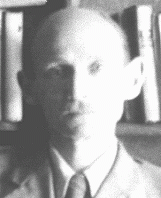
-
Renee Schwalb
ID CardVienna, home to some 175,000 Jews before World War II, was a major center of European Jewry. Vienna was also the intellectual heart of the Palestine resettlement movement. Most of the city's Jews lived in two large districts on the east side of the Danube Canal. Renee's father owned a prosperous men's clothing store in the city. 1933-39: German forces occupied Austria in March 1938. Anti-Jewish measures were quickly imposed. Renee's father was prohibited from doing business and his store was seized. He…
